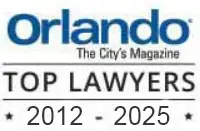Car accident cases may involve an insurance company who wrongfully denies payment in “bad faith.” In these cases, insurers can be sued for damages over and above the limit stated in the policy.
There are no limits on a bad faith claim—even if the case value is more than the policy coverage limits. It is essential to have experienced legal counsel protecting your rights in these cases.
Speak with an experienced Florida attorney at our firm today.
Call 855-Kramer-Now (855-572-6376).
When insurance providers wrongly deny or delay payment, our attorneys can apply bad faith laws to compel them to pay up to full case value. Florida statutes and common law remedies may also allow our lawyers to impose additional penalties, depending on the case.
If you suspect that you are the victim of car insurance bad faith practices, speak with a TK Law attorney as soon as possible.
Florida’s Bad Faith Insurance Law Protects the Insured
When you purchase an auto insurance policy, you expect to be covered or reimbursed when the unexpected happens. If your insurer does not follow through with the promised coverage and wrongfully refuses to pay a claim, they are acting in bad faith.
To understand “bad faith” one must know what “good faith” is, and what your insurance company’s duties are to you, the policyholder.
Every insurance policy has the inherent covenant of “good faith and fair dealings.” Basically, your insurer has an obligation to
- treat you fairly and honestly when evaluating the validity of your claim.
- settle claims against you if it can do so within the coverage limit.
What types of conduct might be bad faith?
- Failure to pay or settle a claim within policy limits without a reasonable basis
- Failure to properly and promptly investigate or defend a claim
- Failure to provide justification for denying a claim
- Using deceptive practices or intentional misrepresentations to avoid paying claims.
- Failure to offer the full value of a claim’s worth, or giving an unreasonably low offer to compensate damages
Florida insurance bad faith claims can be generally classified as two types: third party and first party claims.
Third Party Claim – A Claim with the At-fault Driver’s Insurance Company
An example of third party insurance is Bodily Injury (BI) Liability coverage. You purchase this coverage to protect yourself financially in the event you cause an accident that leads to someone else being seriously injured, and they seek damages against you.
Third-party bad faith occurs when your insurer fails to defend a valid claim or refuses to pay a valid claim brought against you by an injured third party—leaving you exposed to a large personal judgment.
When this happens, Florida law allows the injured third party to bring a bad faith cause of action directly against the insurance company. The injured third party is the beneficiary of any successful bad faith claim.
Example of Third Party Bad Faith Insurance
Let us say that you have $200,000 of bodily injury (BI) liability insurance. BI covers you if your negligent driving causes someone else serious harm.
Now, because you ran a stoplight, Mary suffers severe injuries. Mary’s damages are in excess of $1,000,000. Mary and her attorney can look to your BI coverage for up to the policy limit of $200,000, and no more.
So Mary’s attorney sends a demand letter to your insurance company asking for a $200,000 settlement. If your insurer agrees to settles the case, the case is closed and your insurer pays financial compensation to Mary. Your insurer has acted in good faith.
Yet many times another scenario plays out. Quite often, insurance companies fail to pay out claims for the sole reason of saving money. If your insurer does not agree to settlement terms and unreasonably refuses to pay the claim, or otherwise fails to offer the policy limit in a timely manner, the case must go to trial.
Now your insurer has put you, the policyholder at great risk. Litigation ensues. The jury finds you liable and renders a verdict of $1 million. You are now personally responsible for paying the excess $800,000 of the awarded damages.
At this point—once there is a determination of liability and extent of the damages owed—Florida law allows protection for the insured defendant (you) and the injured plaintiff (Mary) through a bad faith lawsuit.
As the defendant, you may assign the bad faith lawsuit against your insurer to Mary. This absolves you from liability for the judgment, and lets Mary sue the insurer for the additional $800,000 – to recover the full amount of her damages – because your insurance company engaged in bad faith insurance practices.
First Party Claim – A Claim with Your Insurance Company.
You purchase Uninsured/Underinsured (UM) coverage to protect yourself if you sustain injuries and damages in an accident. If no other insurance is available or exhausted, you may make a claim against your own UM coverage up to the policy limit.
Example of First Party Bad Faith Insurance
On your way home from work someone T-bones you. You are badly hurt with realistic damages at $80,000. The wrongful driver has no liability insurance, therefore there is nothing to recover. You have $100,000 UM coverage on your own policy, so your attorney files a well-founded claim on your policy for $80,000.
Yet your insurance company drags their feet for months. They finally reject the claim. This contradicts any semblance of “good faith and fair dealings” under the terms of the policy. You may now have a bad faith claim against your own insurance company for breach of contract and failing to live up to the promise of coverage under your UM policy.
When Your Insurance Company Acts in Bad Faith, Call us
Bad faith insurance claims are complicated actions and involve a multitude of issues.
TK Law attorneys understand the concept of bad faith by insurance companies. We are prepared to apply the law and our experience in order to secure additional compensation for our injury clients or quickly settle claims for their full value, not just the policy limit.
Our goal as Orlando personal injury lawyers is to maximize your claim and ensure the insurance company does not wrongfully deny your claim for fair and just compensation.
Speak with an experienced Florida attorney at our firm today.
Call 855-Kramer-Now (855-572-6376).











